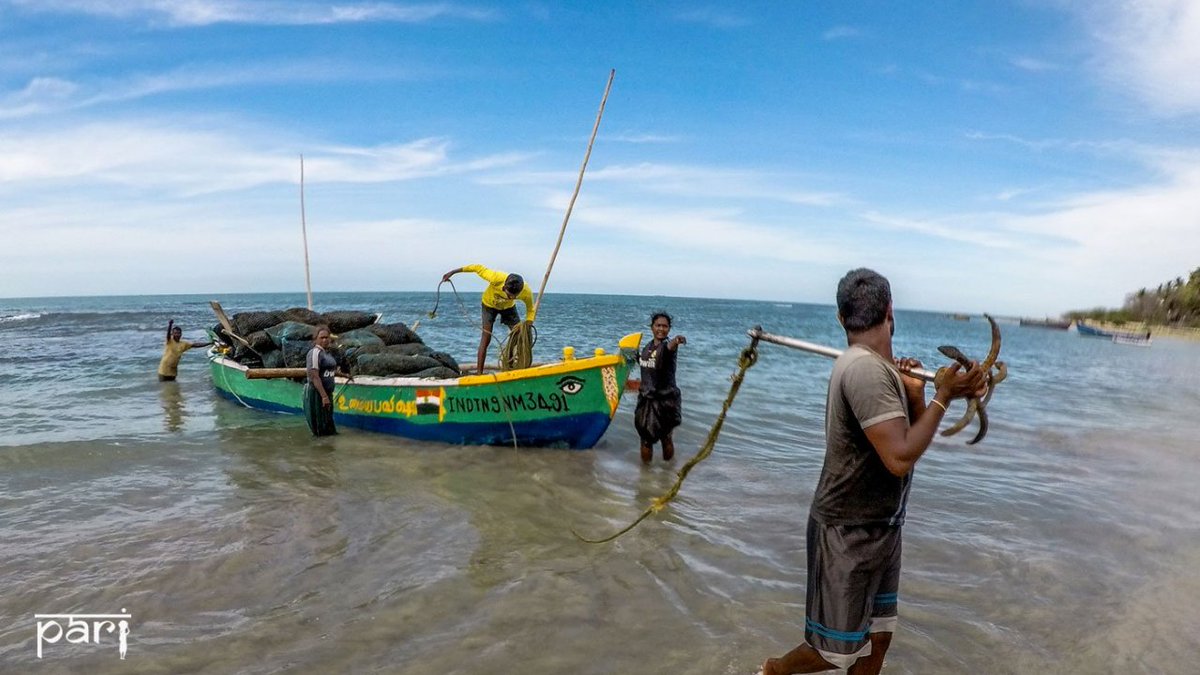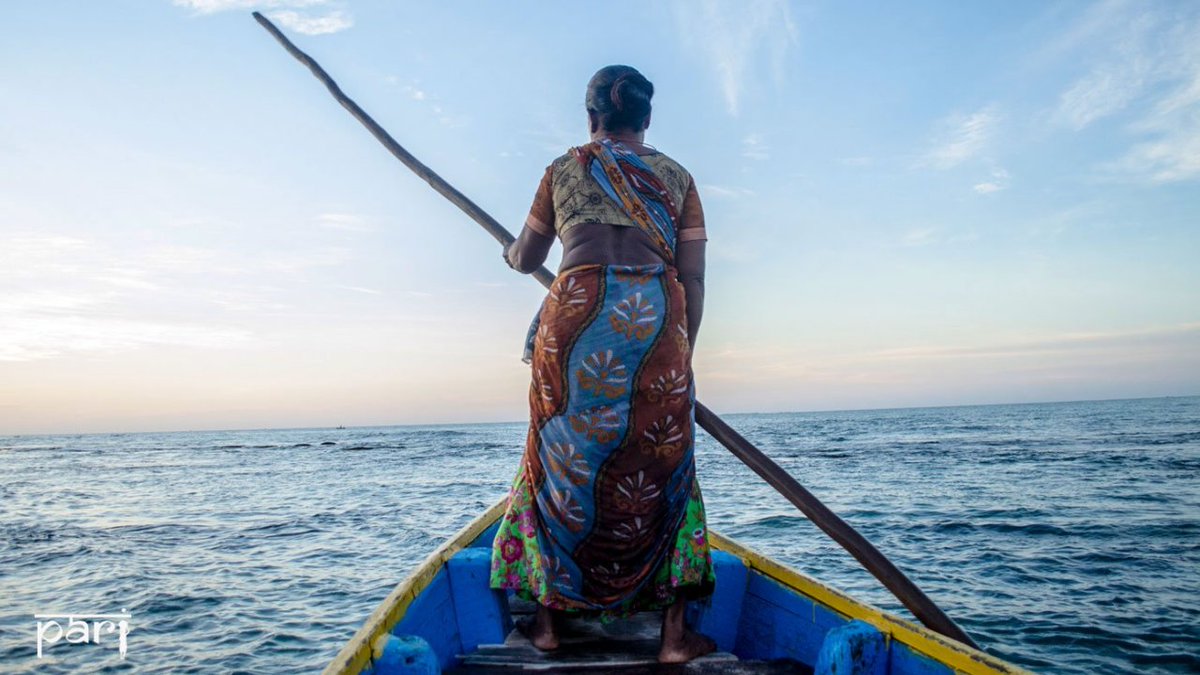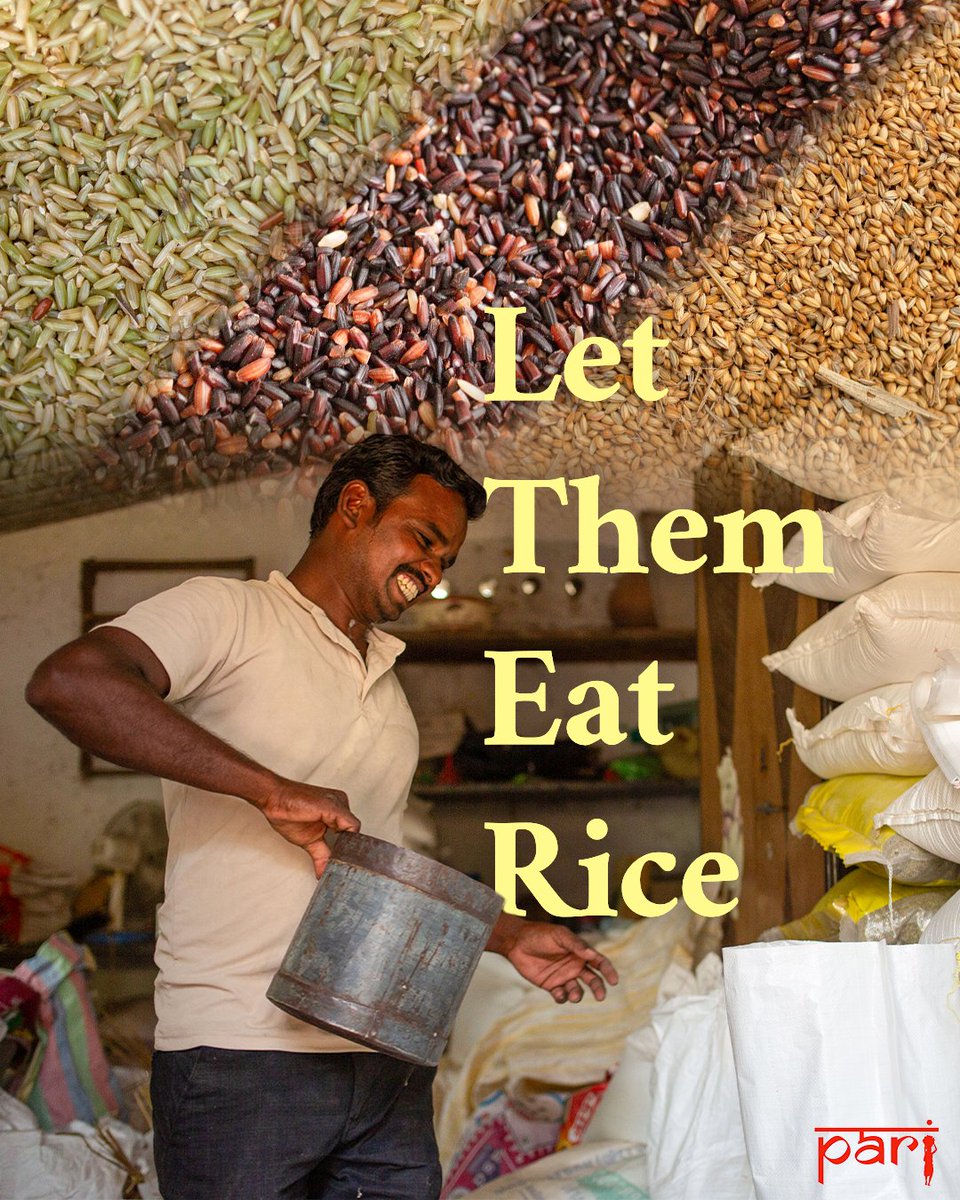#WorldOceansDay | A small boat loaded with seaweed reaches the shore, as a harvester guides the anchor in the fishing hamlet of Bharathinagar in Tamil Nadu’s Ramanathapuram. 

Manoeuvring the boat into the sea to dive for seaweed: without the favour of the winds, all sea-related work is challenging. With changes in larger climatic conditions, too many days are unpredictable. #WorldOceansDay 

Seaweed harvesting is a traditional occupation passed on from mother to daughter through the generations in this region. For some single and destitute women, it is the only source of income. #WorldOceansDay 

Dragging the seaweed that they have collected, onto the shore and unloading the net bags full of day’s dark green harvest. #WorldOceansDay 

• • •
Missing some Tweet in this thread? You can try to
force a refresh























